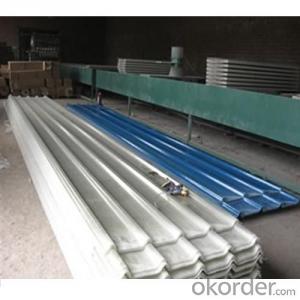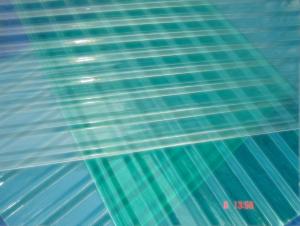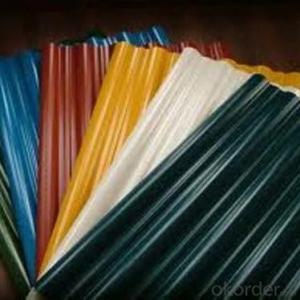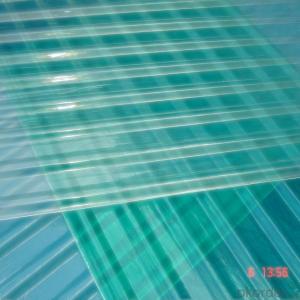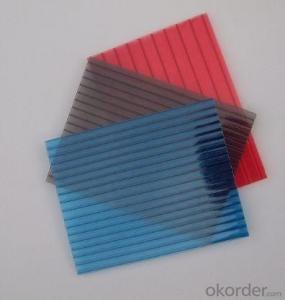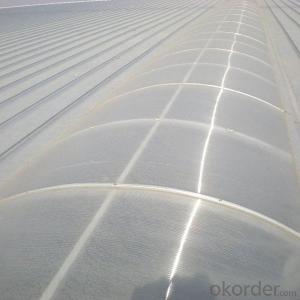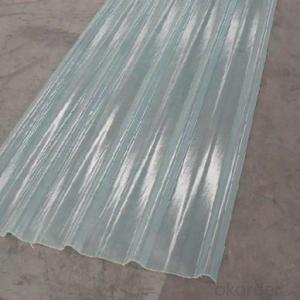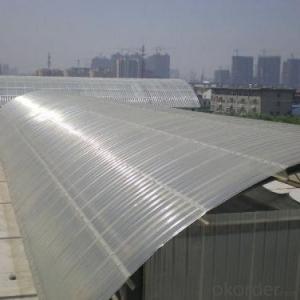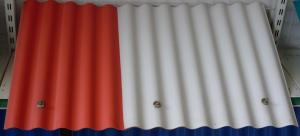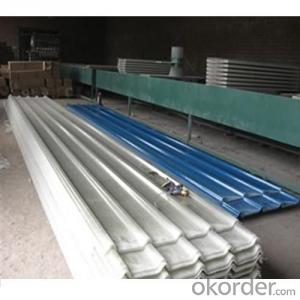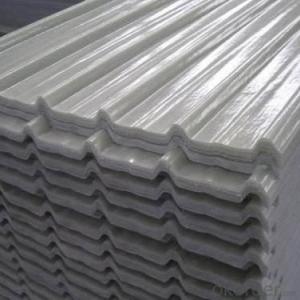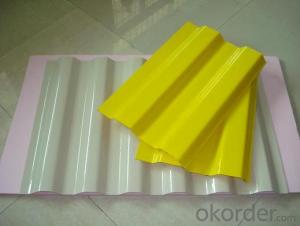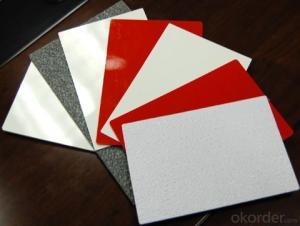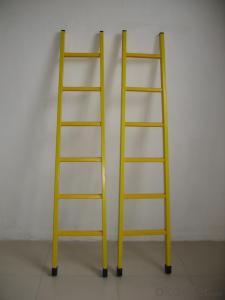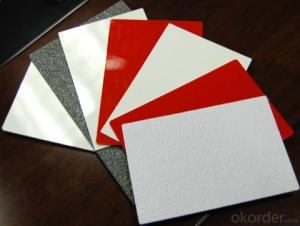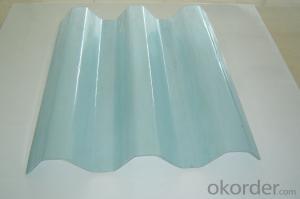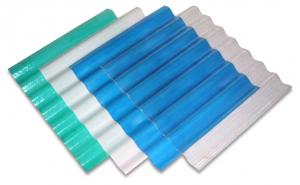Roofing Panels Made Of Fiberglass For Different Usages
- Loading Port:
- Shanghai
- Payment Terms:
- TT or LC
- Min Order Qty:
- 20000 kg
- Supply Capability:
- 200000 kg/month
OKorder Service Pledge
OKorder Financial Service
You Might Also Like
Brief Introduction
the FRP anti-corrosion panel are produced in the same production line with FRP skylight panel, it has greater and more requirements of the professional technology. There are only a few of the manufacturers who can produce FRP opaque panels in China. A lot of FRP opaque corrugated panels have quality problems after intalled. Higoal is a mature manufacturer in producing FRP opaque corrugated panel (anti-corrosion panel), and has great advantages in both quality and lower cost.
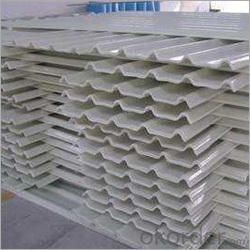
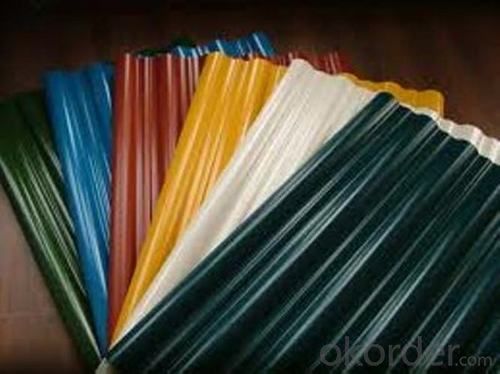
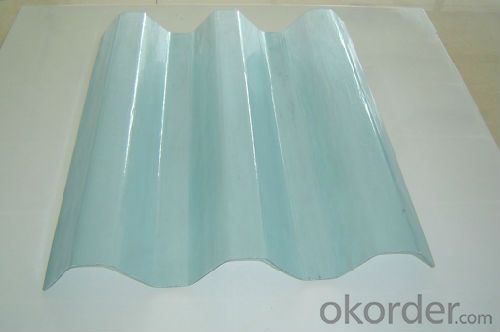
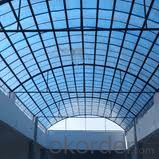
Characteristics
Mechanical properties: high rigidity lighting panels
Plate matches: match with general prepainted galvanized sheet, galvanized steel
Resin composites: Improved anti-aging SMR198 resin
Fiber reinforcement: E-glass fiber untwisted without glue
Surface treatment: affixing MELINEX301 film
Stiffener line: surface with longitudinal uniform distribution of anti-LAC gluten
Technical Specification
Glass fiber: not less than 28%
Unit Weight: 1800g / ㎡, 2400g / ㎡, 3050g / ㎡
Nominal thickness: 1.2 mm, 1.5mm, 2.0mm (tolerance ≤ 10%)
Temperature limits: -60 ℃ ~ +130 ℃
Transmittance (1.5mm): 72% ± 2% (fog white, sky blue, water green), 52% ± 2% (white porcelain)
UV-rate: 99%
Tensile strength: 90Mpa
Flexural strength: 160 Mpa
Elongation: 1.9%
Pap hardness: ≥ 50
Thermal expansion coefficient: 1.5 ~ 3.2 * 10-5 / K
Thermal conductivity: K = 0.23W / m * K
Guarantee: 15 years
NOTE: In special cases, the surface film varieties vary according to needs, such as Melinex389, PT055 and so on.
FAQ
Better property of corrosion resistant than clading panel and stainless steel, it was designed for the harsh conditions, which require products that can withstand corrosive chemicals, high temperature.
- Q:Do FRP roofing panels require any specific tools for installation?
- Yes, FRP roofing panels typically require specific tools for installation. Some common tools include a circular saw with a fine-toothed blade for cutting the panels to size, a power drill with a metal drill bit for creating holes, a caulking gun for applying adhesive or sealant, and a screwdriver or impact driver for fastening the panels to the roof. It is important to use the correct tools to ensure a proper and secure installation of FRP roofing panels.
- Q:Are FRP roofing panels compatible with different roofing fasteners?
- Yes, FRP roofing panels are compatible with different roofing fasteners. These panels are designed to be versatile and can be easily installed using a variety of fasteners such as screws, nails, or clips. This compatibility allows for flexibility in choosing the right fastener based on the specific roofing requirements and conditions.
- Q:Can FRP roofing panels be used in data centers or server rooms?
- Yes, FRP (Fiberglass Reinforced Plastic) roofing panels can be used in data centers or server rooms. FRP panels are known for their durability, thermal insulation properties, and resistance to moisture, chemicals, and corrosion. These characteristics make them suitable for use in environments where temperature and humidity control are crucial, such as data centers and server rooms. Additionally, FRP roofing panels are lightweight, easy to install, and offer good light transmission, which can contribute to energy efficiency and cost savings in these facilities. Overall, FRP roofing panels can effectively meet the requirements of data centers and server rooms, providing a reliable and durable roofing solution.
- Q:Are FRP roofing panels suitable for coastal areas?
- FRP roofing panels are well-suited for coastal areas, thanks to their durability and resistance to corrosion. These panels are known for their ability to withstand moisture, saltwater, and coastal elements. They are made by combining reinforced fiberglass with plastic resins, resulting in excellent protection against saltwater, UV radiation, and extreme weather conditions. Coastal areas often face various challenges, including high humidity, saltwater spray, strong winds, and constant sunlight exposure. FRP roofing panels are specifically designed to endure these conditions without deteriorating or compromising their structural integrity. The fiberglass reinforcement provides strength and durability, while the plastic resins serve as a protective barrier against moisture and corrosion. Furthermore, FRP panels boast a lengthy lifespan and require minimal maintenance, making them a cost-effective option for coastal areas. They resist mold, mildew, and rot, which are common issues in humid environments. The lightweight nature of the panels also facilitates easier installation and reduces the strain on the building structure. In conclusion, FRP roofing panels are an excellent choice for coastal areas due to their resilience, resistance to corrosion, and ability to withstand harsh environmental conditions. They offer long-lasting protection, require minimal upkeep, and are specifically engineered to tackle the unique challenges presented by coastal environments.
- Q:Can FRP roofing panels be used for theaters?
- The use of FRP roofing panels in theaters is indeed possible. These panels, made from Fiberglass Reinforced Plastic, are a versatile roofing material that offers numerous advantages for theater applications. To begin with, FRP panels are lightweight, making them easy to handle and install. This is particularly advantageous in theaters where heavy machinery or equipment may be difficult to access. Additionally, their lightweight nature reduces the strain on the theater structure, making them suitable for both new construction and retrofit projects. Furthermore, FRP panels are highly durable and resistant to various environmental factors. They can withstand extreme temperatures, UV radiation, moisture, and chemicals. This durability ensures that the roofing system remains intact and functional for an extended period, reducing the need for frequent repairs or replacements. Moreover, FRP panels have excellent light transmission properties. This allows natural daylight to enter the theater space, creating a visually appealing environment and potentially reducing the need for artificial lighting during the day. Furthermore, the light transmission properties of FRP panels can be advantageous for theater performances that require specific lighting effects or color schemes. Additionally, FRP panels come in a variety of colors, finishes, and profiles, allowing for customization to meet the aesthetic requirements of the theater. They can be manufactured to resemble traditional roofing materials, such as tiles or shingles, while still retaining the benefits of FRP. In conclusion, FRP roofing panels offer a viable solution for theaters due to their lightweight nature, durability, light transmission properties, and customization options. They provide a reliable and visually appealing roofing solution that enhances the overall theater experience.
- Q:Do FRP roofing panels meet building codes and regulations?
- Indeed, building codes and regulations are indeed met by FRP (Fiberglass Reinforced Plastic) roofing panels. These panels, extensively utilized in the construction field, have undergone meticulous testing and certification to satisfy the precise standards and requirements stipulated by building codes and regulations. Renowned for their robustness, sturdiness, and ability to withstand diverse environmental factors, these panels are apt for usage in commercial, industrial, and residential settings. Nonetheless, it is crucial to acknowledge the potential discrepancies in building codes and regulations across regions, hence it is always advisable to seek guidance from local authorities and secure the essential permits and approvals prior to the installation of FRP roofing panels.
- Q:Can FRP roofing panels be used for canopies over entrances?
- Yes, FRP (Fiberglass Reinforced Plastic) roofing panels can be used for canopies over entrances. FRP panels are lightweight, durable, and have excellent weather resistance, making them suitable for outdoor applications such as canopies. They can provide protection from the elements and create an inviting and visually appealing entrance. Additionally, FRP panels are available in various colors, textures, and designs, allowing for customization to match the aesthetic requirements of the building or entrance.
- Q:Are FRP roofing panels suitable for museums?
- Yes, FRP roofing panels are suitable for museums. They are lightweight, durable, and resistant to various weather conditions, making them a reliable choice for protecting valuable artifacts and exhibits. Additionally, FRP panels offer UV protection, which helps prevent fading and damage to delicate items.
- Q:Are FRP roofing panels compatible with rooftop wind turbines or wind energy systems?
- Yes, FRP (Fiberglass Reinforced Plastic) roofing panels are generally compatible with rooftop wind turbines or wind energy systems. FRP panels are lightweight, durable, and weather-resistant, making them suitable for use in various applications, including supporting wind turbines. However, it is important to note that the compatibility also depends on the specific design and installation requirements of the wind turbine or wind energy system. Factors such as the weight and size of the wind turbine, as well as the load-bearing capacity of the FRP roofing panels, need to be considered. To ensure compatibility, it is recommended to consult with a professional engineer or manufacturer of both the FRP roofing panels and the wind energy system. They can provide specific guidelines and recommendations for the installation, support structure, and any additional reinforcements that may be required to safely integrate the wind turbine or wind energy system with the FRP roofing panels.
- Q:Can FRP roofing panels be installed in low-pitched roofs?
- Yes, FRP roofing panels can be installed in low-pitched roofs. While FRP roofing panels are commonly used on roofs with a steep pitch, they can also be installed on roofs with lower pitches. It is important to note that the specific installation requirements may vary depending on the manufacturer and the specific design of the FRP roofing panels. However, with proper installation techniques and the use of appropriate sealants and fasteners, FRP roofing panels can provide a durable and waterproof solution for low-pitched roofs. It is always recommended to consult with a professional roofing contractor to ensure the correct installation method is followed for your specific roof.
1. Manufacturer Overview |
|
|---|---|
| Location | |
| Year Established | |
| Annual Output Value | |
| Main Markets | |
| Company Certifications | |
2. Manufacturer Certificates |
|
|---|---|
| a) Certification Name | |
| Range | |
| Reference | |
| Validity Period | |
3. Manufacturer Capability |
|
|---|---|
| a)Trade Capacity | |
| Nearest Port | |
| Export Percentage | |
| No.of Employees in Trade Department | |
| Language Spoken: | |
| b)Factory Information | |
| Factory Size: | |
| No. of Production Lines | |
| Contract Manufacturing | |
| Product Price Range | |
Send your message to us
Roofing Panels Made Of Fiberglass For Different Usages
- Loading Port:
- Shanghai
- Payment Terms:
- TT or LC
- Min Order Qty:
- 20000 kg
- Supply Capability:
- 200000 kg/month
OKorder Service Pledge
OKorder Financial Service
Similar products
New products
Hot products
Hot Searches
Related keywords
